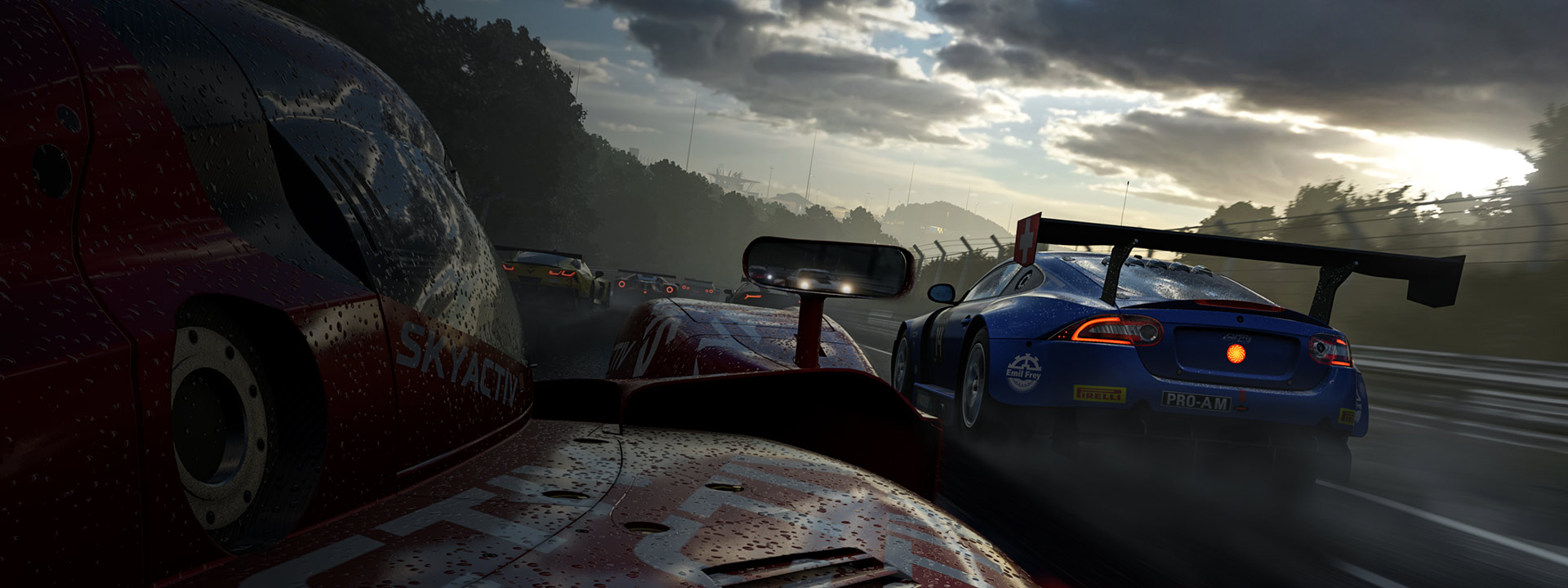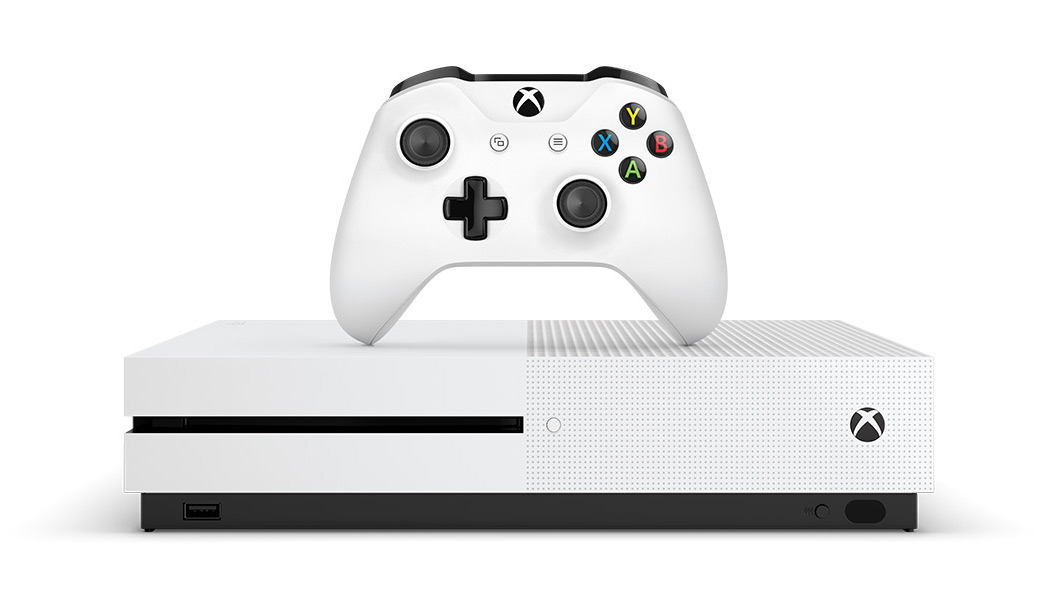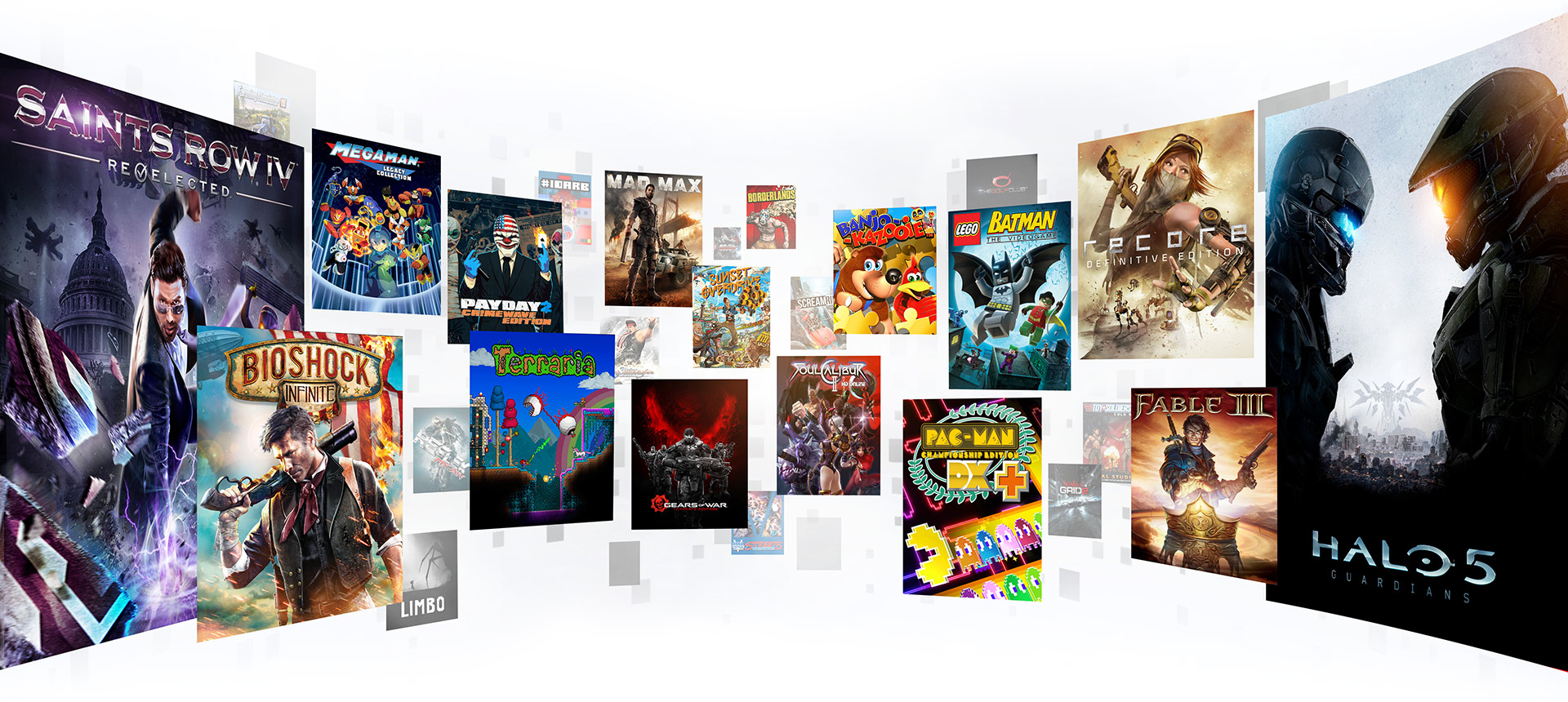This is going to be an interesting venture for multiple reasons. Number one: I have never owned an Xbox platform. Number two: I always owned PlayStation or Nintendo platforms and consider myself a fan of both, but not Xbox. Number three: Microsoft never posts sales numbers for Xbox One or One X. With those circumstances in mind, I don’t want you to click on another article because of my inexperience of the brand. Thanks to the help of Samuel Taylor, who does own an Xbox One and is a fan of Xbox himself, I am very knowledgeable of what they do and I do care about what they do because they give Sony competition and give the industry stability. We wouldn’t want a monopoly in the games industry now, would we? So, Microsoft is a very important player. I’ll get into this later, so let us begin the review
If you read my Nintendo or PlayStation review, you should know the drill. If not, I judge a brand by four categories: Games, Strength, Relations, and Future. Games are exclusive titles and exclusive content made by marketing deals between publisher and company. Strength is sales numbers of the consoles and support of online services or hardware. Relations is how the company communicates to the fanbase. Future’s how the coming years look for the brand in terms of all three categories. Got all that? I thought you would. You guys seem intelligent! Anyway, let’s start with the Games category!

Games: 2017 is a clear reminder to Microsoft that they need more internal studios. Turn 10, The Coalition, Rare, 343 Industries, Mojang (who doesn’t have any plans for new games), and Lift London, which just helps with first-party games. That pales in comparison to their competition, Sony, which has a dozen of them, and Nintendo, which has a bunch of in-house studios like Sony and some subsidiaries. You know what happens when you don’t buy that many studios? You get droughts like this one. This drought, in particular, made a racing game and an indie game their best games this year. Now, for gamers, Cuphead and Forza 7 are excellent games, but for a business, there’s a lot left to be desired.
Samuel Taylor chimes in: “One of the main issues when it comes to exclusivity on the Xbox One, is that they’ve mostly been phasing the term out in 2017, opting to release most of their titles on the PC or Windows 10 also. Examples include Cuphead, Forza Motorsport 7, Luna, and many others. A shining force has also been the ID@Xbox program, where indie developers can opt for a release on Xbox One. For the most part, developers have used this to re-release their games for a quick boost in sales, which has flourished this year.

“On the other hand, ID@Xbox has become another string in the bow of indie devs to allow their ideas reach a bigger audience, with most having a massive impact. Some highlights would include the oddly enthralling Aven Colony, the melancholic minimalism of RiME, and the adorably annoying Snake Pass.
“There are many others in the market that are well worth your time, but for now, the Xbox One Game Marketplace is more of a breeding ground for ideas that are actively encouraged, than most of the other platforms. With this knowledge in mind, you can’t help but commend Microsoft for how they’ve handled gaming on their console.”

Another issue is the sheer lack of big AAA releases. Forza 7 isn’t a juggernaut of a franchise like Halo or Gears of War. Cuphead is a budget title that won’t rank in buckets of money like Halo or Gears. They did have a Halo spin-off this year, Halo Wars 2, and that wasn’t a bad game in the slightest. However, around the same time, Sony got an open-world, robotic-dinosaur hunting, RPG game with stunning visuals that could easily market the PS4 Pro. That’s what Microsoft needs. The new IP. Halo and Gears can satiate appetites for so long. Honestly, I can’t think of much else they released this year. Sure, they ported PUBG, an unfinished game that’s even more unfinished on their platform just because it was popular. Now, it did sell remarkably well and so did Cuphead. Both of them are quality games…well, one of them plays way better on PC.
Apart from that though, their AAA games were underwhelming by sheer quantity. The industry demands a flow of games that move units for console manufacturers and Microsoft failed to deliver this year. Thus, Games is getting a 6/10. Most games that came out were awesome, but none of them were big like Zelda or Horizon.
Games: 6/10.
Strength: Microsoft is radio silent when it comes to sales numbers. Using VGChartz (which uses dated figures as it reads PS4 at 66.5 million when it recently broke 70 million.) and an average rate of consoles sold, I can assume they passed 35 million? Well, according to VGChartz, 31.5 million Xbox One consoles were sold as of November 2017, but EA assumed there were 19 million Xbox Ones sold January 2016 and Nvidia said they sold 29 million units in August 2016. Something’s not adding up here. What caused the sudden spike in sales numbers from January and August? The Xbox One S was pretty damn successful, outselling the PS4 three months in a row. Did it sell over 10 million in that time frame, though? Even so, why would VGChartz claim Xbox One sold over two million consoles from August 2016 to November 2017? Everyone seems to be either overestimating or underestimating the performance of the Xbox One.

VGChartz isn’t a very reliable source, but they seem on-the-nose for PS4 sales as Sony had a historically good Black Friday. Perhaps they based their Xbox One estimates on the dated Nvidia statement? Well, enough guessing! I’m getting to the bottom of this. The One S boosted sales significantly for the platform, so I believe it sold a little under 10 million, say 9.5 million, from January to August. That momentum noticeably dropped when the Pro launched, giving the One a 5 million unit growth. The momentum dropped a little more in the first half of 2017 due to PS4’s big software releases like Horizon, Nioh, Persona 5, and Crash. From January to June, Xbox One sold 4 million units. Now, my estimates are at 38 million. On the second half of 2017, the X added 1 million units but subtracted 1 million sales from the S due to anticipation for its release, so the One is currently sitting at around 43 million units. Placing it 27 million units below its main competitor. The gap shrunk, but the Xbox One is still miles behind. I think 2017’s lack of compelling exclusives for the platform was detrimental to the platform because it gave consumers the impression that Xbox One had fewer games, thus a less valuable console.

How were their services this year? Game Pass proved to be a superior version of PS Now. Backwards compatibility is awesome. Think about it, Microsoft is the only company keeping the idea of backward compatibility alive right now while maintaining a profit from it. Xbox Design Lab remains highly popular with the community and several new customization options were added. They announced the Xbox Live Creators Program, which essentially makes anyone with an Xbox and coding experience able to have their games published on the platform. There’s also ID@Xbox which birthed many great indie games. It’s safe to say that Microsoft is in a pretty good position with the Xbox. They’re not top-dog, but they don’t have to be. 43 million consoles in four years aren’t bad at all and the One X could easily outsell the Pro and shrink the gap a little more.
With great hardware, solid sales, and excellent services, Strength is getting an 8/10.
Strength: 8/10

Relations: As the underdog, Microsoft has a responsibility of maintaining trust and respect from the community. Phil Spencer and Larry Hryb are setting standards of public relations in the industry. On Twitter, Hryb gives away a game every Friday; because of that, he accumulated over 1 million followers. Spencer chats with fans on a regular basis, giving thoughts about certain topics in the game industry and the direction of the brand. Mike Ybarra frequents on social media as well and often times streams on Mixer and does giveaways. On YouTube, Hryb hosts the weekly show “This Week on Xbox” which encompasses all the major news stories involving the Xbox brand each Friday. The show is entertaining and I find myself looking forward to watching some episodes.
Back on the topic of backward compatibility, Microsoft doubled down on fan requests and added original Xbox games. They also resell certain BC games in retail stores. Not to mention the frequent OS upgrades on Xbox One platforms. They added gift-giving in the Marketplace and are revamping Avatars in 2018. They also host huge sweepstakes which players can enter by completing small missions. All of these stunts show that Microsoft turned a new leaf since 2013, but that ghost still haunts them. Microsoft basically admits defeat to Sony since the gap is insurmountable at this point of the generation, especially considering the massive AAA games under Sony’s belt. Winning isn’t important to Microsoft anymore. They clearly want to give fans a great platform that always evolves, for better or worse. The best gift of them all is great exclusives, but Microsoft killed the term “exclusive” with Play Anywhere, so might as well treat them like gold, right?
I haven’t seen a company respect fans so immensely, even when the future looks questionable. The endless supply of thank yous Microsoft gives fans are extraordinary, and Xbox fans should be happy they’re with the underdogs. Relations is getting a 10/10.
Relations: 10/10
Future: The future of Xbox is like wearing a blindfold during a rollercoaster. You don’t know where it’ll go next. Let’s take a gander at their “exclusive” games. Sea of Thieves, Crackdown 3, State of Decay 2, The Last Night, and Ori and the Will of the Wisps all slated for 2018. Personally, I’m looking forward to The Last Night most. The aesthetics look gorgeous and the narrative sounds like Blade Runner. I feel like this could be another Cuphead except with a gripping story and possibly less challenging gameplay that spurs unnecessary discussion of inclusiveness in gaming, as if difficulty promotes discrimination. I honestly need to see more of Sea of Thieves as it looks rather repetitive from trailers, going from dungeon to dungeon and sailing back to sea to find another dungeon. Crackdown 3 looks rocky and was announced way too early. State of Decay 2 looks pretty mediocre and cookie-cutter to me. For zombie games, you need to be unique. Ori and the Will of the Wisps look amazing, but I want to see gameplay. Overall, their games don’t seem all that exciting. The highest amount of excitement levels are slightly above “intrigued”. Maybe the marketing isn’t as good as Sony’s, but Sony’s exclusives seem to be grand, new experiences with riveting stories and fun gameplay. Here, I see gameplay, but not much substance.
We’ll probably see a Battlefield marketing deal in the coming months and maybe a new Halo teaser trailer at E3 2018, but we’ve had like 6 Halo games so far and 343 Industries hasn’t matched Bungie-quality campaigns yet. Then again, Halo 3 is one of the best games ever made, so I don’t expect them to surmount it. Like I said before, Microsoft needs the new IP. The new idea that gets everyone talking. Sony has at least four of those: Dreams, Detroit, Ghost of Tsushima, and Death Stranding. Older IP are re-energized at the Sony camp as well, like God of War and Spider-Man. Why? For God of War, it’s a completely different game, and for Spider-Man, Insomniac Games are behind it, the same folks who made Sunset Overdrive. The Last of Us: Part II will also be huge, but I don’t want to drone on about Sony in a Microsoft article. My point is: Microsoft needs to take risks again. They should revive old Rare IP like Banjo-Kazooie or Perfect Dark.

They should also ease up on the Play Anywhere initiative and restrict it to smaller titles like Ori. I know Play Anywhere is well-received by fans, but it does hurt console sales and basically hands customers to Steam. Yeah, they still profit from it, but if they want their consoles to flourish more, give customers a reason to buy their platform. Exclusives are a necessity, after all. As for backwards compatibility and Game Pass, they should keep going strong with them. Those are great ideas that need to stay alive in the gaming industry. Their marketing for Xbox One X has been great, as well as the One S. The PS4 will always be the more desired platform this generation no matter what they do now. I expect the Xbox One to surpass 55 million by the end of 2018, which will put them at around 30 million units behind the PS4 (I predicted the PS4 would top 95 million by the end of 2018). Given the lineup of the PS4 in 2018, 55 million seems to be pushing it. While we’re at predicting sales numbers, let’s say the One X will sell 6 million by year’s end.
Backwards compatibility for 360 will hit 700 titles, over half of the console’s library, and 200 original Xbox games. What would those games be? Lord if I know. Regardless, we’ll be seeing a lot more 360 and OG Xbox games. Let’s get overly-optimistic here and say we’ll see a brand new IP from Microsoft, what would that game be? If they really want to turn heads, I’d say they’ll have Rocksteady make an exclusive for them, it will be another open-world game. That would be a showstopper for them at E3. The media will praise the graphics and gameplay and gamers will get hyped for it. ID@Xbox will continuously pump out new intriguing indie games and some cool Creators Program games will be promoted at E3 2018. Anything else big? Not really. Halo 6, the hypothetical new Rocksteady IP, and maybe Forza Horizon 4 will usher in 2019 for them. Then again, none of these games technically exist yet, so who knows?
Lots of folks are murmuring online that Microsoft will ditch consoles altogether next generation and I feel like that would be incredibly detrimental to the industry. Say Microsoft leaves the console market and gives Steam a run for its money with a gaming service that provides exclusive games. What would actually happen? They would give Sony 75% of the console market doing so. Why 75%? Most third-party games wouldn’t run on a Switch unless Nintendo produces a more powerful system, but how could they prepare themselves for a Microsoft withdrawal? The next generation is just two or three years away. None of the three companies know what each other is planning. A Microsoft withdrawal would bring so much change for the industry, and not all of it’s for the better. We know Sony’s next step is another console, Microsoft flirted with streaming tech, and Nintendo just launched their newest platform and aren’t possibly working on the next one now. If Microsoft leaves console manufacturing, imagine the amount of dominance Sony would receive. The Switch will likely reach its mid-way point, so most big third-party games will release only on Sony’s platform. Writing that alone makes me nervous.

Look, I love PlayStation, but give a company the majority of the pie and you have a monopoly. I know Nintendo’s looking to be a bigger player than initially expected, but Sony would still get a massive advantage in the market with the majority of heavy-hitting third-party games coming only to their platform. None of this hypothetical future looks bright. I hope Microsoft makes a new console or at least a streaming box so they’ll be outside the PC market. I guess if Microsoft, God forbid, leaves the console business, then Nintendo will be forced to compete with Sony, breaking Iwata-era traditions. Then we’d have a Nintendo vs. Sega situation again, and that would be pretty cool to see. Two gaming titans battle it out, trying to win over the majority market share. That would also pose a lot of benefits to consumers as well. Price cuts aplenty, better exclusive games, better online networks and services, and better hardware. If anything, this would be the silver-lining of the hypothetical future.
I’m not sure how to rate an unclear future. It doesn’t look great nor terrible either. Their 2018 games look shallow in comparison to Sony’s traffic jam of compelling content. I have no clue how their consoles are going to perform due to lack of updates from Microsoft, but based on my estimations the Xbox One looks fine. Anything beyond this generation, I also don’t know if Microsoft believes in consoles anymore regardless of how the Xbox One performs. If Microsoft withdraws, it could create a massive imbalance in the console market for either a few years or a generation and a half. I’ll have to give future a 5/10 score based on what we know so far

